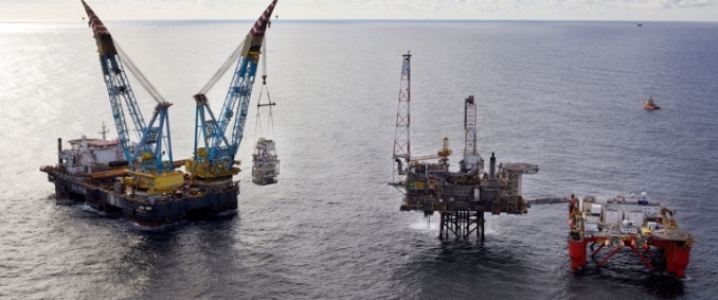The oil price plunge of the past weeks has had OPEC considering a fresh production cut to prevent the next oil glut and steer Brent Crude prices back up closer to $70 per barrel.
WTI Crude at $50, on the other hand, may soon start testing the U.S. shale patch if the U.S. benchmark oil price stays at that level.
But oil majors are not worried about the recent slide in oil prices. Bruised by the 2014-2015 price crash, Big Oil has been planning projects, production, and profit margins at an oil price range assuming a conservative floor at $50 Brent Crude.
BP, for example, sees a range of between $50 and $70 as “sensible” and plans on that range, the UK supermajor’s Regional President of BP Middle East, Michael Townshend, told CNBC on sidelines of a conference on Iraq’s reconstruction in Dubai.
“Our investment decisions are all based on a range of pricing, they’re in that $50 to $70 range — whatever today happens to be, we have no control over whatever tomorrow happens to be,” Townshend told CNBC.
BP’s Regional President for the Middle East echoed comments from BP’s CFO Brian Gilvary, who said on the Q3 earnings webcast at the end of October:
“As oil prices stay up over $50 a barrel, we will be surplus free cash as we go into 2020, and 2021. And, of course, we have said our breakeven goes down to $35-40 a barrel by the end of 2021, unless we chose to distribute to shareholders.”
Answering an analyst question at what oil price BP is basing its plans, Gilvary said that this year the company set that at $55 a barrel.
“We run those cases at $50 and $75 a barrel. And at $75 a barrel real over a very long period of time, and $50 is the base case that we run everything at. That’s how we look at our projects,” Gilvary noted.
Regional President of BP Middle East Townshend was a keynote speaker at the conference ‘Iraq – Reconstruction & Rebuilding, how to deliver Vision’ organized by the Iraq Britain Business Council, of which BP—operator of the world’s third-largest producing oil field, Rumaila in Iraq—is a founding member. Related: How Much Does OPEC Need To Cut To Balance The Market?
“Working closely with State owned Basra Oil Company and PetroChina has allowed BP to develop Rumaila, which is now one of the most efficient fields in the world and contributes around 30% of the budget of Iraq,” Townshend said ahead of the conference.
While BP looks unfazed by the latest oil price plunge, analysts warn that the lower oil prices will reduce Iraq’s oil revenues, which cover nearly 90 percent of the country’s budget.
With Brent Crude at $60 a barrel, Iraq can afford to meet the current expenditures, but there won’t be anything extra left for infrastructure investment to rebuild the country after it pushed ISIS out, Frank Gunter, professor of economics at Lehigh University in Bethlehem, Pennsylvania, said at the conference this weekend.
“A lot of infrastructure is needed — electricity and water come immediately to mind. Yet it does not appear that the money will be there,” CNBC quoted Gunter as saying.
Iraq’s new Prime Minister Adil Abdul-Mahdi is currently trying to pass the 2019 budget bill through Parliament, but politicians in many areas, including Nineveh in the north devastated by ISIS and the oil-rich key southern region Basra rejected a first budget draft, saying their regions are not getting enough for reconstruction and services infrastructure such as water and electricity.
If oil prices stay at their current level, Iraq—despite boosting oil exports and production—will have lower revenues to allocate to rebuilding the country.
The oil price slide in recent weeks with Brent now at $60 may not be an issue for Big Oil, but it is an issue at OPEC’s second-largest oil producer Iraq, and at all other OPEC members for that matter. It’s no surprise at all that OPEC is discussing a sizeable production cut to reverse an oversupply and lift oil prices.
By Tsvetana Paraskova for Oilprice.com
More Top Reads From Oilprice.com:
- How Much Oil Production Will The Saudis Cut?
- The Biggest Losers Of The Current Oil Price Slump
- Shell: EV Demand To Grow Regardless Of Oil Prices


















